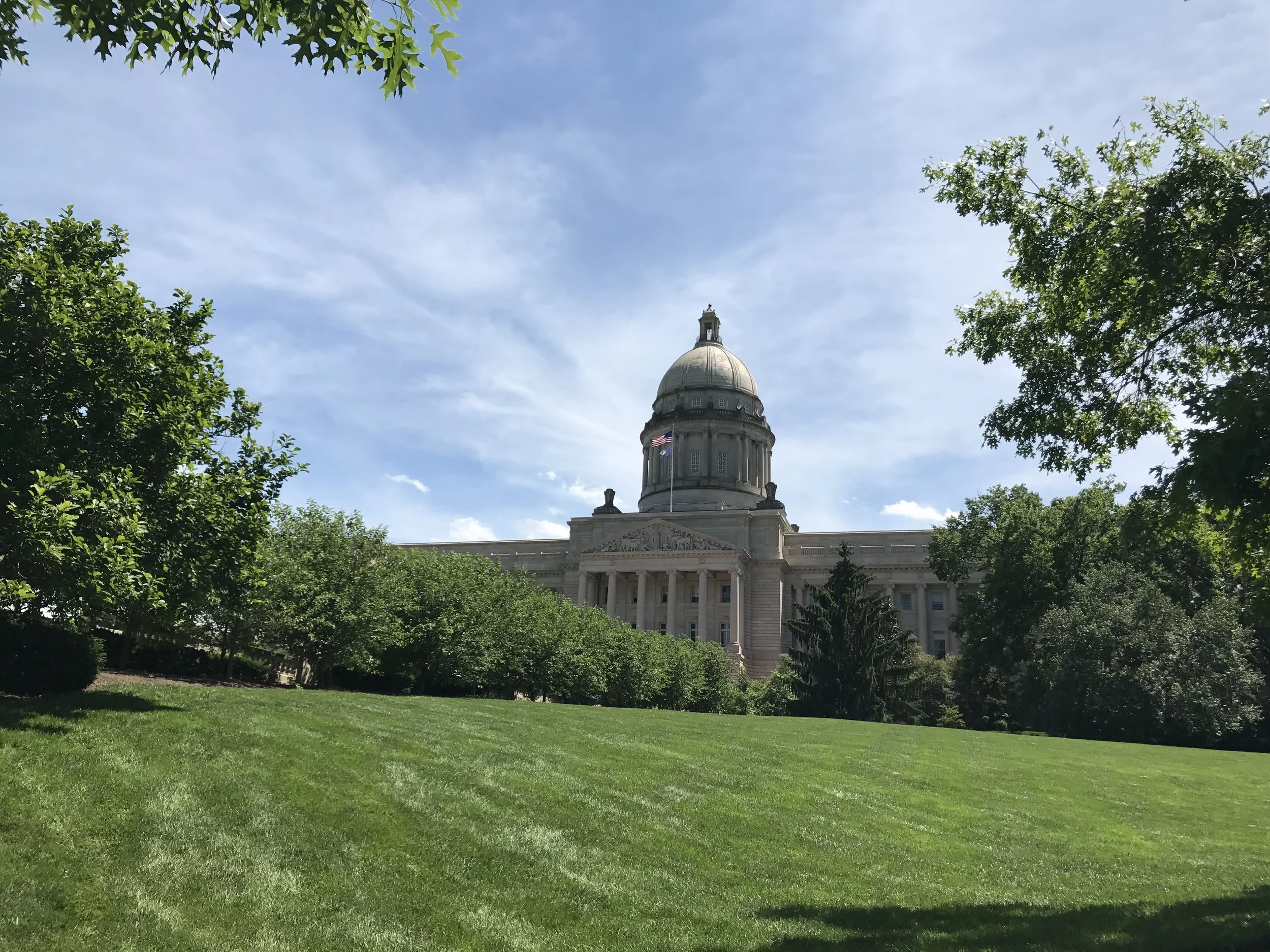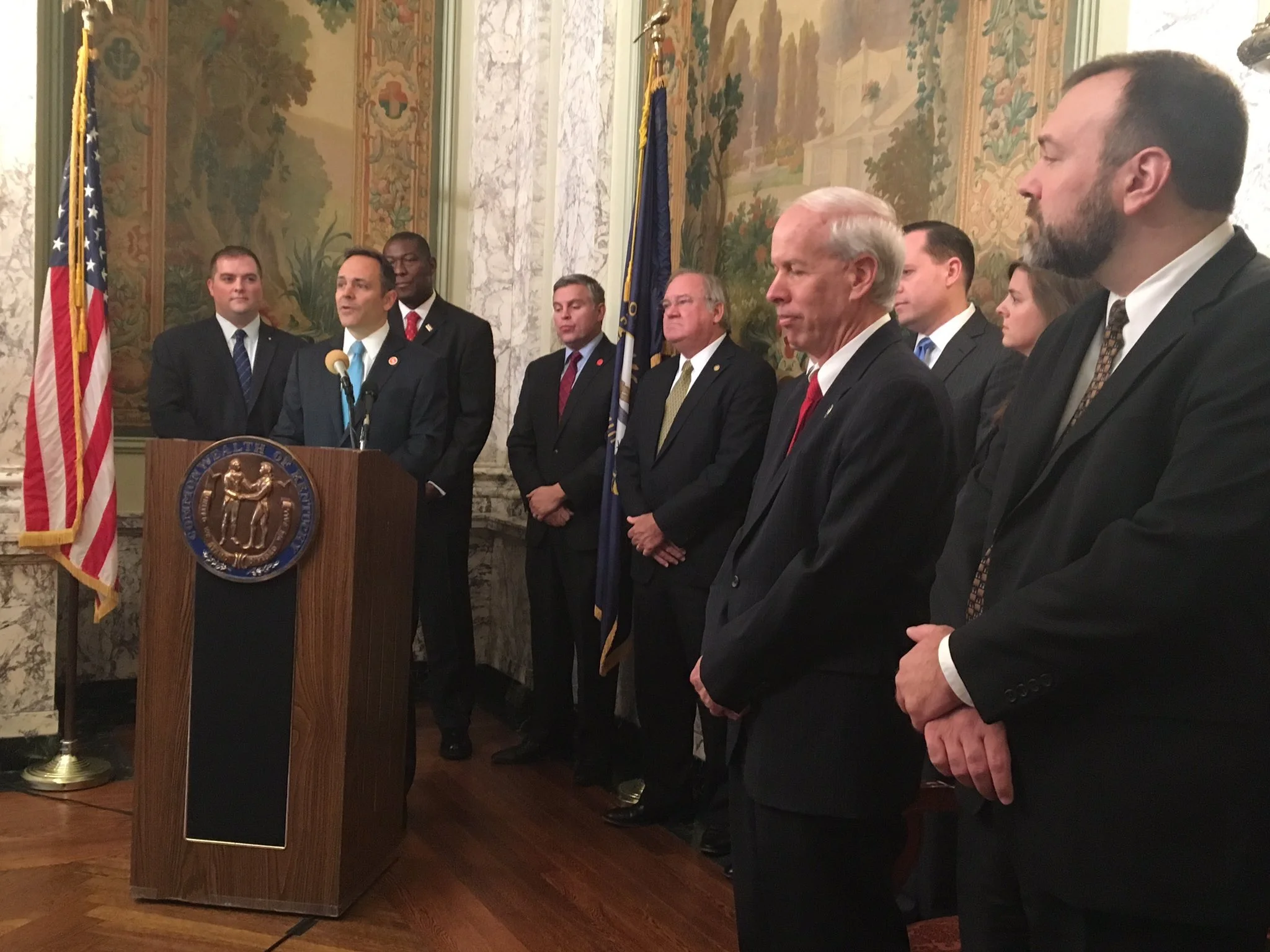Earlier this year, the National Conference of State Legislatures named me, along with a colleague from the Nebraska Senate, as Co-Chair of a newly formed Juvenile Justice Principles Working Group. My Co-Chair and I have been working with NCSL staff over the last few months to prepare for the group's upcoming meetings this year. We aim to produce a report, or white paper of sorts, to guide states looking at reforming their juvenile justice systems. Here's my release about the news:
For Immediate Release
Contact: John Cox
859-492-2963
John.Cox@LRC.KY.GOV
SENATOR WHITNEY WESTERFIELD APPOINTED AS CO-CHAIRMAN OF NCSL JUVENILE JUSTICE PRINCIPLES WORK GROUP
FRANKFORT, Ky. (June 5, 2017) – State Senator Whitney Westerfield was recently appointed as co-chairman to the newly-established Juvenile Justice Principles Working Group, a subset of the National Conference of State Legislature’s (NCSL) Law, Criminal Justice And Public Safety Committee.
“It is easier to build strong children than to repair broken men.”
According to NCSL, the purpose of the juvenile justice work group is to discuss and develop a set of principles of effective juvenile justice state policy that NCSL will publish as a report to guide policy review and reform in the states. The report is intended to identify policy-making strategies that are rooted in research, reflect bipartisan/nonpartisan values, and help states invest in proven methods to put justice-involved youth back on the right track, while also keeping communities safe. The principles and report will be an important tool that state lawmakers can apply both now and well into the future.
Senator Westerfield, the chairman of the Senate Judiciary Committee and a member of both the Juvenile Justice Oversight Council and Governor Matt Bevin’s Criminal Justice Policy Assessment Council, thanked NCSL for the appointment. “Our work in the juvenile justice system here in Kentucky has set a national standard, giving a template for several other states to follow, yet we still have so much to do to improve outcomes for youth and improve public safety,” said Senator Westerfield. “I thank NCSL for this opportunity and I look forward to bringing my experience to the table, working with many dedicated men and women from across the United States to shape policy that will help our children in Kentucky and across the country.”
The Juvenile Justice Principles Working Group’s first meeting is June 6-8. Senator Westerfield championed Kentucky's comprehensive juvenile justice reform in 2014, and the Commonwealth's 2017 criminal justice reform law, Senate Bill 120, and will be presiding at two of the conference’s meetings. Those meetings will focus on juvenile justice research and data and juvenile justice reform, both for which Senator Westerfield has been an advocate in Kentucky.
The National Conference of State Legislatures was established in 1975 and is a bipartisan, non-governmental organization dedicated to the success of state legislatures. NCSL has three main objectives: improve the quality and effectiveness of state legislatures; promote policy innovation and communication among state legislatures; and ensure state legislatures have a strong, cohesive voice in the federal system.
###







